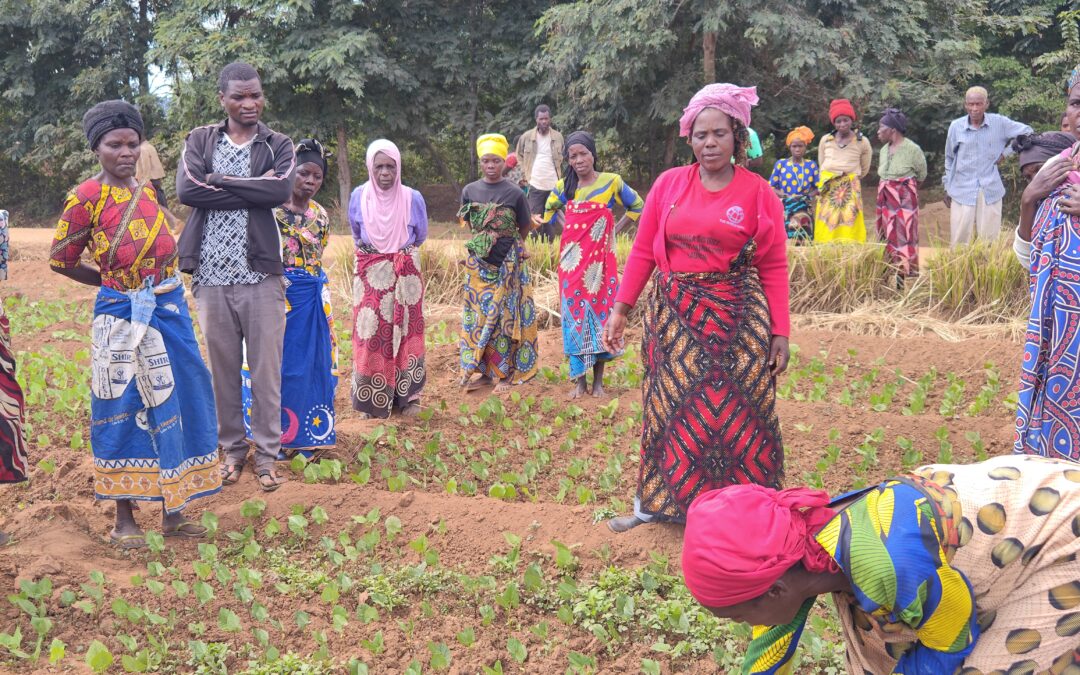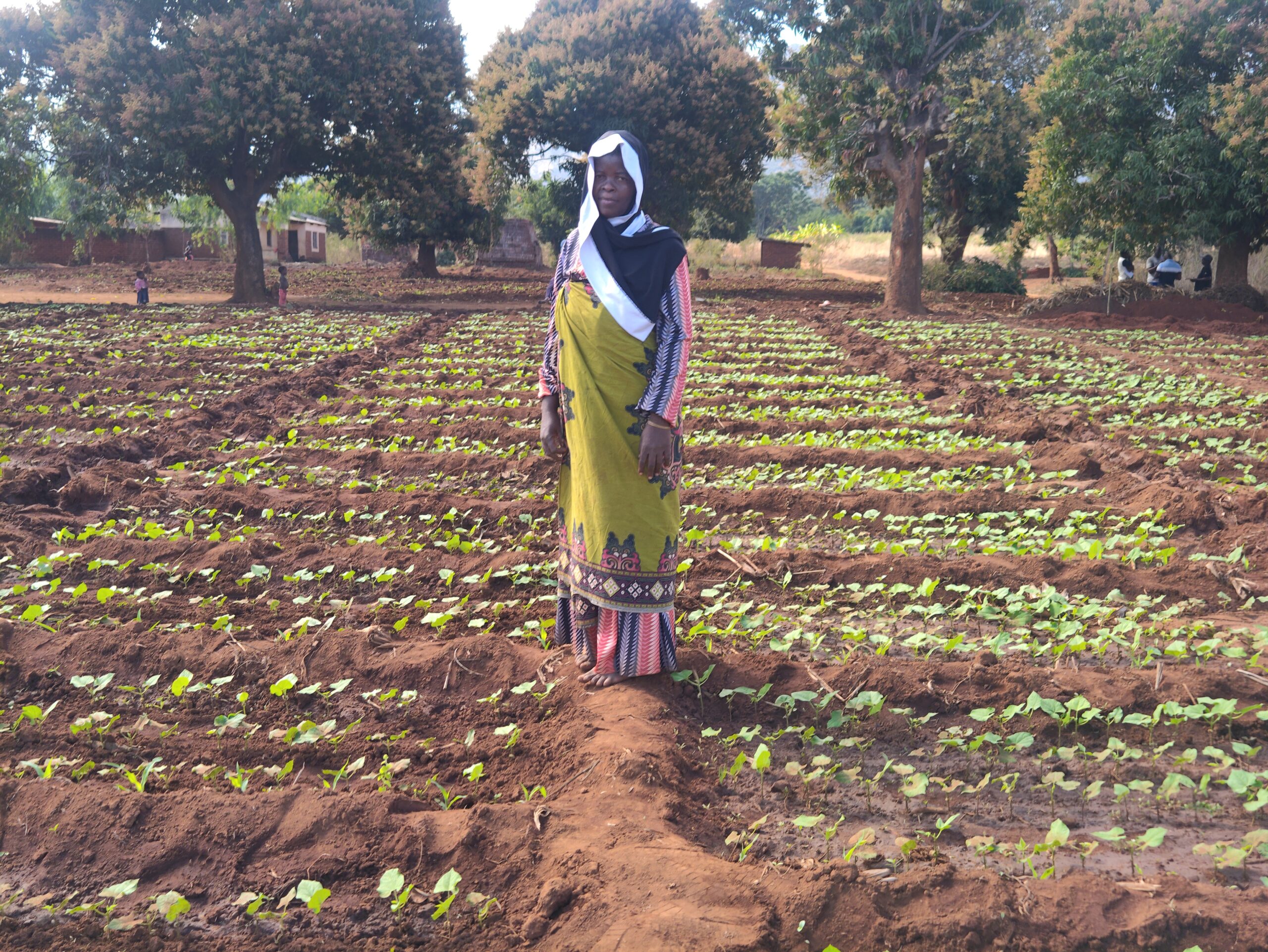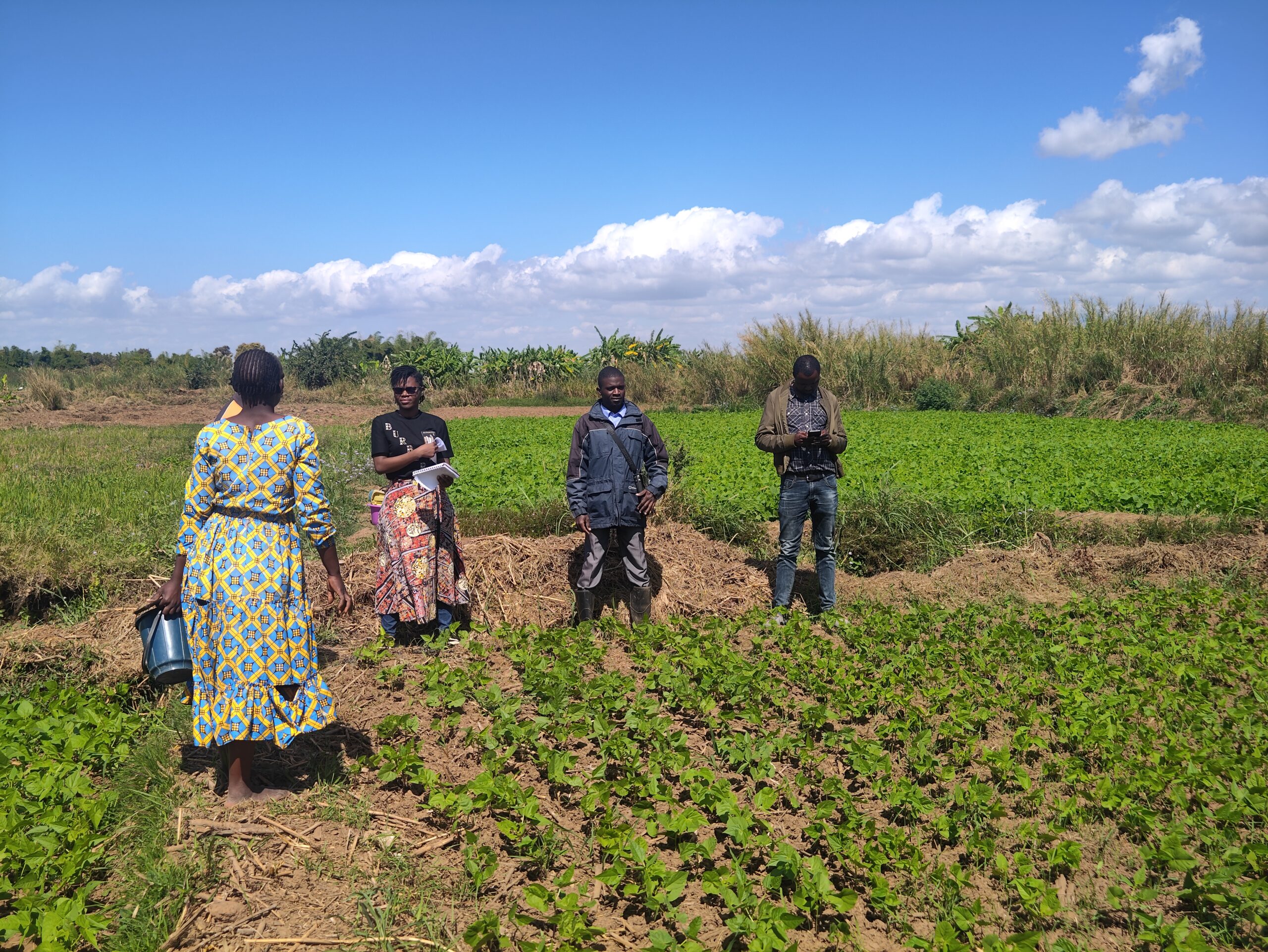By Eunice Magwaya, Wilson Nkhata, and Jean Claude Rubyogo
In the early morning light of Mdere, a quiet farming community tucked into Malawi’s southern Machinga district, rows of green bean plants stretch across what was once parched, underutilized land. Hanifa Kondwani walks between the rows with practiced ease, her hands brushing against the leaves. It’s a scene of promising one that would have seemed impossible just a few years ago.
“We never had the means to farm in winter,” she says, pausing to lift a pod from a sturdy stalk. “Water was there, but we didn’t have the systems, the knowledge, or the seeds. Now everything has changed.”
In a region long plagued by erratic rainfall, low yields, and limited market access, the transformation underway is nothing short of remarkable. At the heart of this quiet agricultural revolution is the Accelerated Innovation Delivery – Initiative (AID-I), a program designed to fast-track the last-mile delivery of agricultural tools, technologies, and modern production methods. AID-I focuses on boosting productivity, efficiency, and incomes for smallholder farmers, while strengthening food security and resilience across bean value chain.
By tackling systemic bottlenecks in seed systems, the initiative supports smallholder producers, Small and Medium Enterprises, and national partners in sustaining and expanding food production. In Machinga, these efforts are being led by the Alliance of Bioversity International and CIAT through Pan-Africa Bean Research Alliance (PABRA), in partnership with the Zomba Diocese Catholic Development Commission (CADECOM), working together to reimagine smallholder bean farming as a sustainable, climate-smart, and profitable livelihood for local communities.
From dry land to double harvests
For years, farming in Mpoya and Mdere was a gamble against the climate. The land sat idle during the winter months, its potential locked away by lack of irrigation and access. Now, more than 511 farming households are reaping the benefits of newly installed irrigation infrastructure, covering over 100 hectares, with 40 hectares dedicated to beans for varieties such as NUA35 and sugar 131, which was introduced in the village by one of the partners, One Acre Fund.
For farmers like Hanifa, the changes brought by irrigation have been nothing short of transformative. “This land used to rest after one harvest,” Hanifa says. “Now, I can plant again, even in the dry season. That’s something we only dreamed of.” What was once a single growing season has become two, a second chance to grow, earn, and thrive.
But irrigation is just the beginning. Hanifa who has grown beans for four years, has seen her entire approach to farming evolve. “I used to just hope the rain would come,” she adds. “Now, I understand my soil. I know which seeds to use. I know how to plan.”
Her earnings from 2023/24 season of about 800 kilograms harvests, assisted her pay for her children’s school fees. This year, she’s setting sight on buying a motorcycle, not for leisure, but for transportation of crops. “I want to move my crops to market myself,” she says with a quiet smile.
The climate-smart way and breaking barriers
The AID-I project takes a holistic approach. Alongside water, it brings knowledge, training, and innovation, all tailored to the harsh realities of farming in a changing climate. Through advisory services, farmers are taught climate-smart practices: how to manage their soil better, how to rotate crops, and how to plant drought-tolerant bean varieties that survive dry spells. Farmers are also trained in seed multiplication, ensuring not only better yields, but also a sustainable supply of high-quality seeds within the community.
Perhaps the most game-changing development is the connection to formal markets. For years, smallholder farmers in Machinga were at the mercy of informal traders, often forced to sell their crops at unfair prices. Through AID-I, farmers now have a direct line to Tev Foods, a commercial offtaker that offers competitive, stable prices – a rare luxury in rural agriculture. This new model does not only improve income but also restore dignity to the process. Farmers become businesspeople. Their work, long undervalued, finally receives its due.
Blueprint for the future
“This is more than an agriculture project,” says a CADECOM Project Officer Anastanzio Makhulula. “It’s a complete ecosystem, from the soil to the marketplace, designed to build resilience, generate income, and improve food security.”
This theory is working. Beyond higher yields and profits, the project is fostering food security, climate resilience, and a renewed sense of possibility. In a country where many smallholder farmers are highly vulnerable to drought and market volatility, this kind of model offers a roadmap to sustainable growth.
By bringing together government partners, private sector players, and research institutions, AID-I is building a resilient bean value chain and a new way forward for rural communities. In Machinga, change does not shout, it grows. It takes root in rehydrated soil, blossoms in the hands of farmers trained in new techniques and is harvested in every bag of beans now bound for market. For Hanifa Kondwani and hundreds like her, farming is no longer about surviving from season to season. It’s about building something that is lasting.
_________________________________________________________________________
Cover Photo: Thanks to new irrigation systems, farmers in southern Malawi are doubling their harvests and transforming their future



